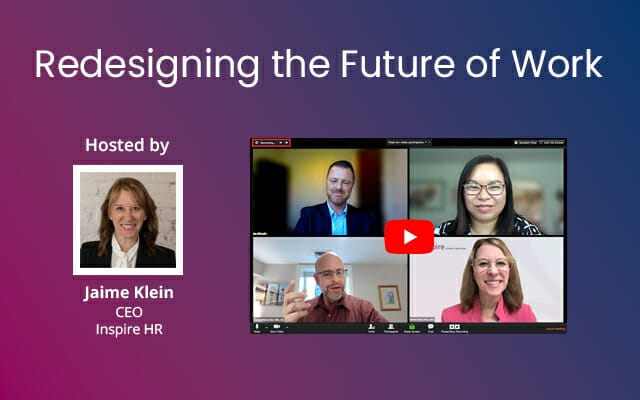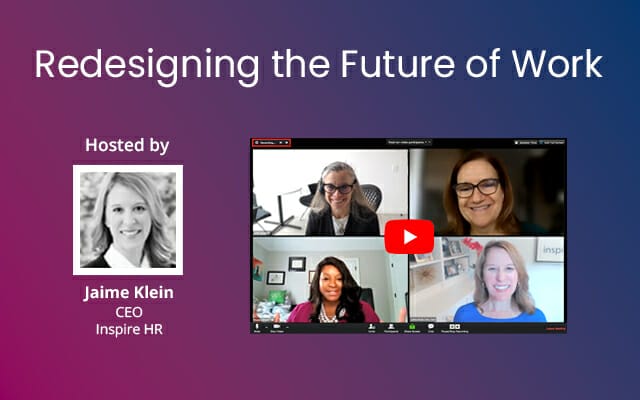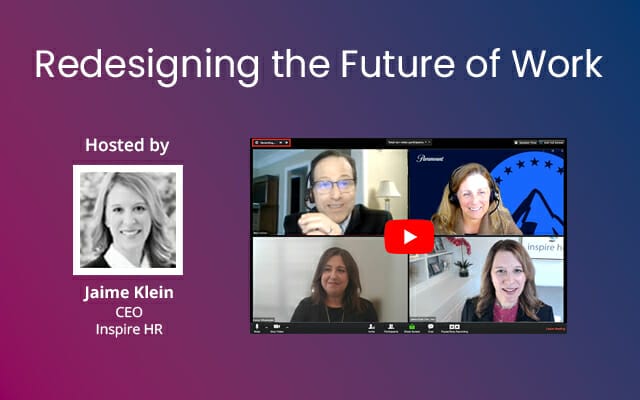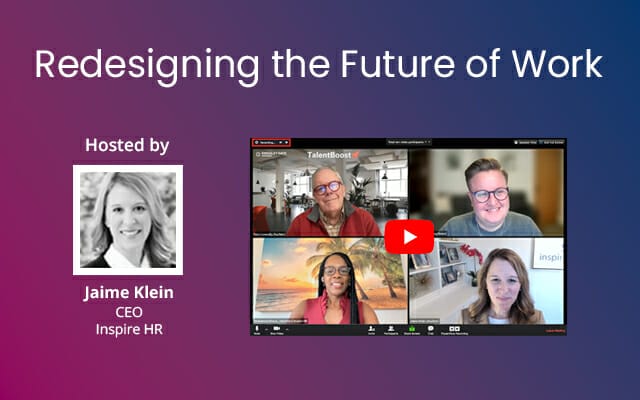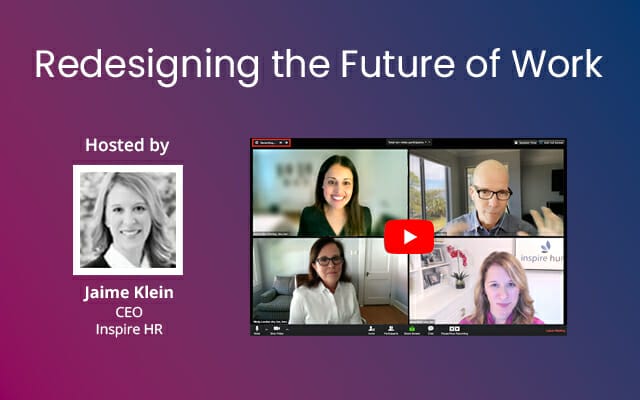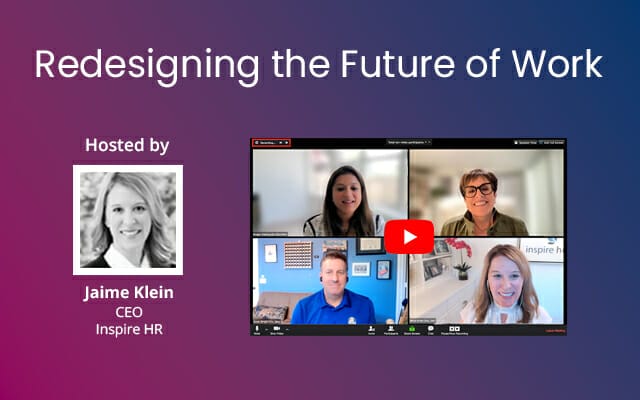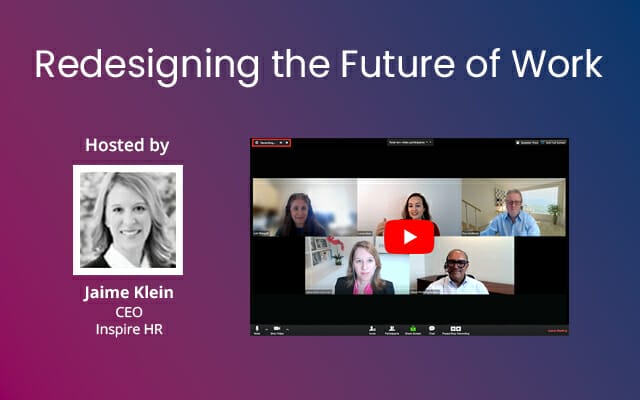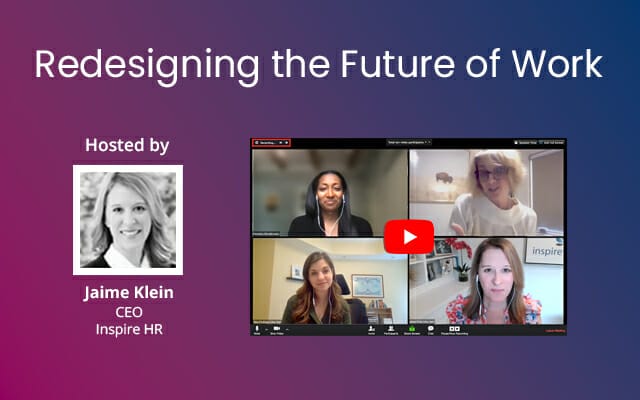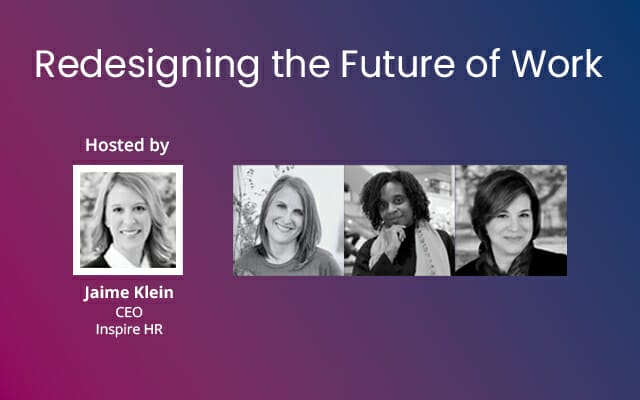
Talent Development in a Changing World of Work
MAY 25, 2022
We recently welcomed Jodi Rabinowitz, Head of Talent and Organizational Development, Zoom Video Communications, Katasha Harley, Chief People Officer, Bravely, and Celia Berk, Inspire HR Expert, HR Leadership for “Talent Development in a Changing World of Work.”
This session in our ongoing live series was packed with value, so we’re highlighting all of the standouts from Jodi, Katasha, and Celia below.
Share your thoughts and questions on Talent Management with us at any time by emailing hello@inspirehumanresources.com or find us on LinkedIn, here.
Talent Development Highlights
Here are the top highlights across coaching, retention, and inclusive talent management:
Coaching
- When we think about where coaching is today compared to 2019, the question is shifting from “Who needs a coach?” to “Who doesn’t need a coach?”
- The need for coaching is growing as younger generations and people from traditionally marginalized communities approach leadership roles for the first time.
- Coaching can cover sensitive topics and either the coach or the employee may feel more comfortable on video or off. Allow for personalized settings so someone can turn off their self-view to avoid looking into a mirror, or book a phone call instead of a Zoom meeting.
Retention
- People leave for more money, but they won’t stay for more money. The recognition of being put onto an advancement path, tagged as a high performer, or included within a cohort of high potential employees means a lot to a person. It means they are on the radar, they stand out, and they’re recognized as a valuable contributor. If this person were to leave your company, they may receive more pay, but they’d have to start that journey of recognition from the very beginning again.
- Millennials and Gen Z employees look for a new career development or advancement opportunity every two years. Be deliberate in identifying how working with a senior leader or an interim member of the team with diverse experiences offers significant upskilling and resume-building opportunities for your employees. At Inspire, we often hear from clients at the conclusion of an interim assignment that the presence and leadership our Expert brought to the company was every bit as valuable as the execution of the tasks at hand.
- An insightful piece in Time referred to today’s “YOLO (You only live once) economy” for talent. 65% of people are looking for new employment and people increasingly want to derive meaning from their work. According to the CEO of CareerBuilder, Susan Arthur, “The days of joining a company and retiring from a company…well, I just don’t see it. I now have to think about what I can do that is uniquely special to help this person grow.” She says from the moment she hires someone she starts thinking about how to retain them.
Inclusive talent management
- We can’t treat talent management for in-person employees the same as for hybrid or remote employees. Companies need to create career journey ladders for each way of working in order to ensure an inclusive approach. The work has tripled to accommodate in-person, remote, and hybrid experiences.
- When looking at data from employee surveys and performance metrics, examine it with an intersectional lens. Looking exclusively at gender, ethnicity, age, or another demographic will overlook individual employee experiences.
- Consider the benefits and challenges a remote meeting on Zoom presents for employees who are hearing impaired or do not speak English as a first language. Captioning services make virtual meetings more accessible. And, what a silver lining that there is now greater attention for accessibility at in-person events too, after seeing how technology can assist.
- Consider hosting regional meetings so there are more ways to connect than just in the office. It makes the commute easier and shows the company is willing to move to employees, too.
